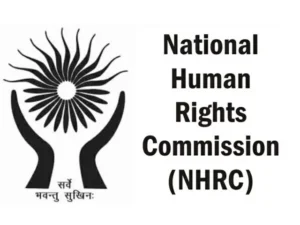
Why India’s Human Rights Commission Faces Challenges
- NHRC the country’s primary body tasked with safeguarding human rights, has found itself in a precarious position.
- For the second consecutive year, a crucial UN-linked organization has deferred accreditation for the NHRC, raising concerns about its effectiveness and independence.
- This development comes from the Global Alliance of National Human Rights Institutions (GANHRI), an organization affiliated with the UN fundamental rights office.
- GANHRI plays a vital role in reviewing and accrediting NHRIs based on the Paris Principles, a set of minimum standards established by the UN.
- Accreditation from GANHRI is crucial for NHRIs to participate in key international forums like the UN Human Rights Council and hold voting rights.
The Road to Accreditation and the Paris Principles
- GANHRI, representing over 120 NHRIs globally, conducts reviews every five years to assess their compliance with the Paris Principles. These principles establish six core criteria for effective NHRIs:
- Broad Mandate: The NHRC’s mandate should encompass a wide range of universally recognized fundamental rights norms and standards.
- Autonomy from Government: The NHRC should function independently, free from undue government influence.
- Independence Guaranteed by Law: The NHRC’s independence should be explicitly guaranteed by the country’s constitution or legislation.
- Pluralism: The NHRC’s composition should reflect the diversity of the society it serves, ensuring a balanced representation.
- Adequate Resources: The NHRC should be equipped with sufficient resources to fulfill its mandate effectively.
- Adequate Powers of Investigation: The NHRC should possess the necessary investigative powers to probe alleged basic rights violations.
- NHRIs categorized as “A” by GANHRI achieve full compliance with the Paris Principles, while “B” denotes partial compliance. With accreditation, NHRIs can participate in vital forums and contribute to international human rights discourse.
India’s Accreditation History: A Cause for Concern?
- Established in 1993, the NHRC initially received accreditation in 1999. It maintained an “A” status in subsequent reviews conducted in 2006 and 2011.
- However, concerns surfaced in 2016 when accreditation was deferred due to issues like the appointment of political representatives and a lack of gender balance within the NHRC. While the SCA ultimately granted “A” status in 2017, the recent deferral raises fresh questions.
Reasons Behind the Deferred Accreditation
- The details of the recent decision are yet to be officially released.
- However, last year’s report from the SCA highlighted areas where the NHRC reportedly fell short of Paris Principles compliance. These included:
- Lack of transparency in NHRC appointments
- Potential conflict of interest arising from police involvement in investigations
- Absence of minority or female representation within the NHRC
- Adding to these concerns, a joint letter by nine human rights organizations, including Amnesty International and Human Rights Watch, addressed to GANHRI in March 2024 expressed anxieties about India’s basic rights institutions. The letter cited concerns raised by the UN High Commissioner for Human Rights regarding shrinking civic space and discrimination against minorities in India.
Impact of Deferred Accreditation
- The deferral of accreditation by GANHRI has several implications for the NHRC.
- It signifies a lack of confidence in the NHRC’s ability to function as an independent and effective civil liberties watchdog.
- Additionally, it restricts the NHRC’s international presence, preventing it from participating in key forums and advocating for India on the global fundamental rights stage.
Looking Ahead: A Call for Transparency and Reform
- The NHRC’s current situation necessitates a clear roadmap for regaining accreditation.
- Addressing the concerns outlined by the SCA, such as ensuring transparency in appointments and promoting diversity within the NHRC, is crucial. Additionally, demonstrating a commitment to independent investigations and safeguarding human rights for all citizens is paramount.
- Furthermore, proactive engagement with international human rights bodies and addressing concerns raised by the UN can help rebuild trust and confidence.
- By adhering to the Paris Principles and upholding the highest standards of human rights protection, the NHRC can regain its rightful place as a credible and effective human rights institution, both domestically and internationally.
- This situation presents an opportunity for India to reaffirm its commitment to human rights and strengthen its democratic credentials.
- Only through transparency, reform, and unwavering dedication to human rights can the NHRC reclaim its role as a champion for a just and equitable society.
People als ask
Q1: What is the NHRC of India?
Ans: The NHRC is a statutory body established in 1993 to investigate human rights violations, protect human rights, and recommend remedial measures.
Q2: What is the Global Alliance of National Human Rights Institutions (GANHRI)?
Ans: GANHRI is a UN-linked organization that reviews and accredits national human rights institutions (NHRIs) based on the Paris Principles. Accreditation allows NHRIs to participate in international human rights forums.
Thank you for your sharing. I am worried that I lack creative ideas. It is your article that makes me full of hope. Thank you. But, I have a question, can you help me?
thanks for your comments.you can write it down here if you have any douts and query.